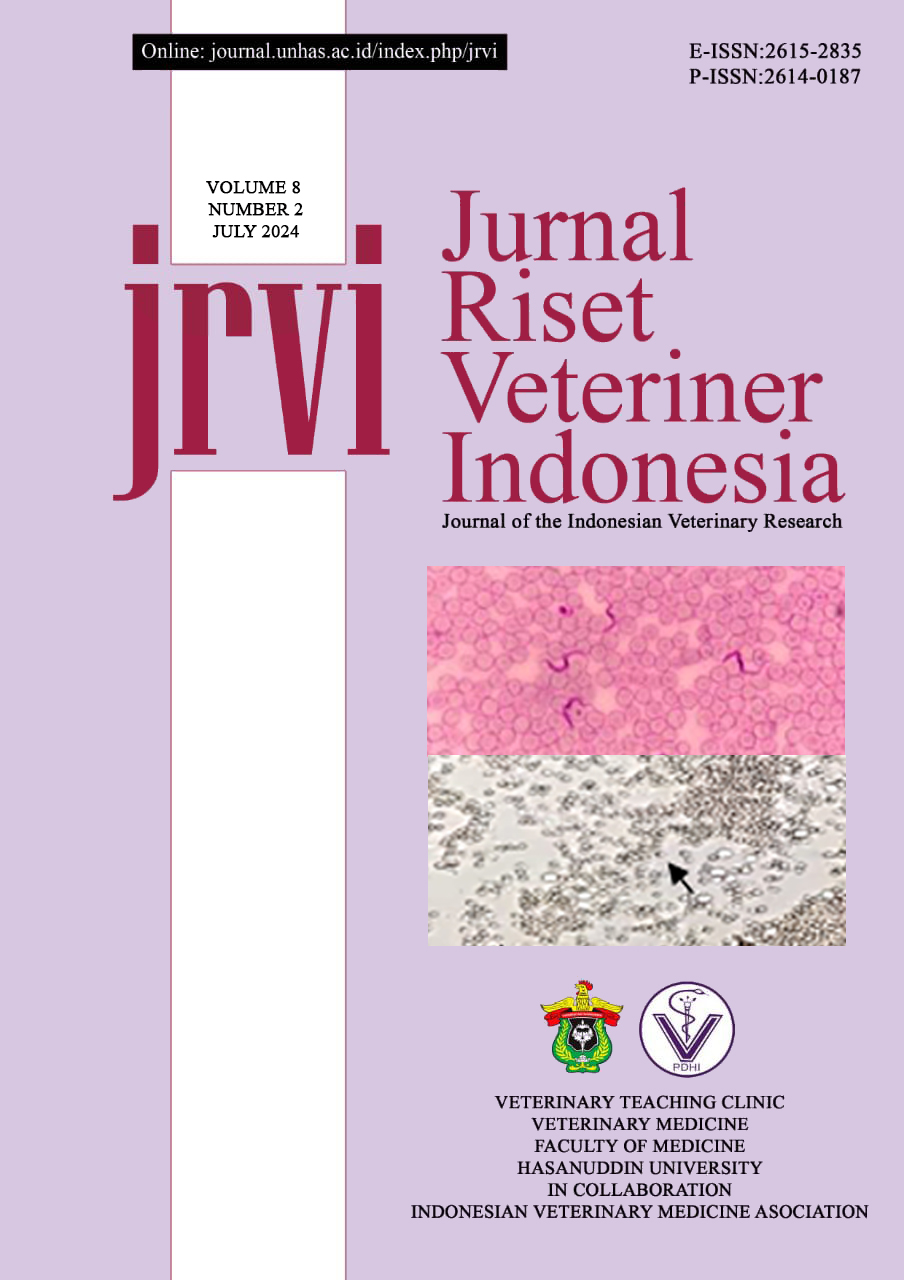Abstract
Salmonellosis is a significant global public health concern caused by the bacterium Salmonella spp. As a zoonotic disease, it can be transmitted between animals and humans, leading to various clinical symptoms in humans, including gastroenteritis, diarrhea, vomiting, enteric fever, and septicemia. This study examines the presence of Salmonella spp. in house geckos (Hemidactylus frenatus and Cosymbotus platyurus), which may act as zoonotic reservoirs. A total of 50 house geckos were collected from residential areas across five districts in Makassar City—Biringkanaya, Tamalanrea, Tallo, Manggala, and Rappocini—from March to September 2024. Skin, oral, and fecal samples from the geckos were cultured on nutrient agar, brain heart infusion broth, and selective Salmonella-Shigella agar, with bacterial identification confirmed using MALDI-TOF mass spectrometry. Findings revealed the presence of Salmonella enterica ssp. enterica in geckos from the Manggala district, highlighting a potential pathway for environmental contamination and zoonotic disease transmission. This study underscores the need for public awareness regarding the health risks associated with household reptiles and emphasizes preventive sanitation measures to reduce potential pathogen exposure. These findings serve as a foundation for future research on zoonotic reservoirs in urban environments.
This work is licensed under a Creative Commons Attribution-NonCommercial 4.0 International License.
Downloads
Download data is not yet available.

